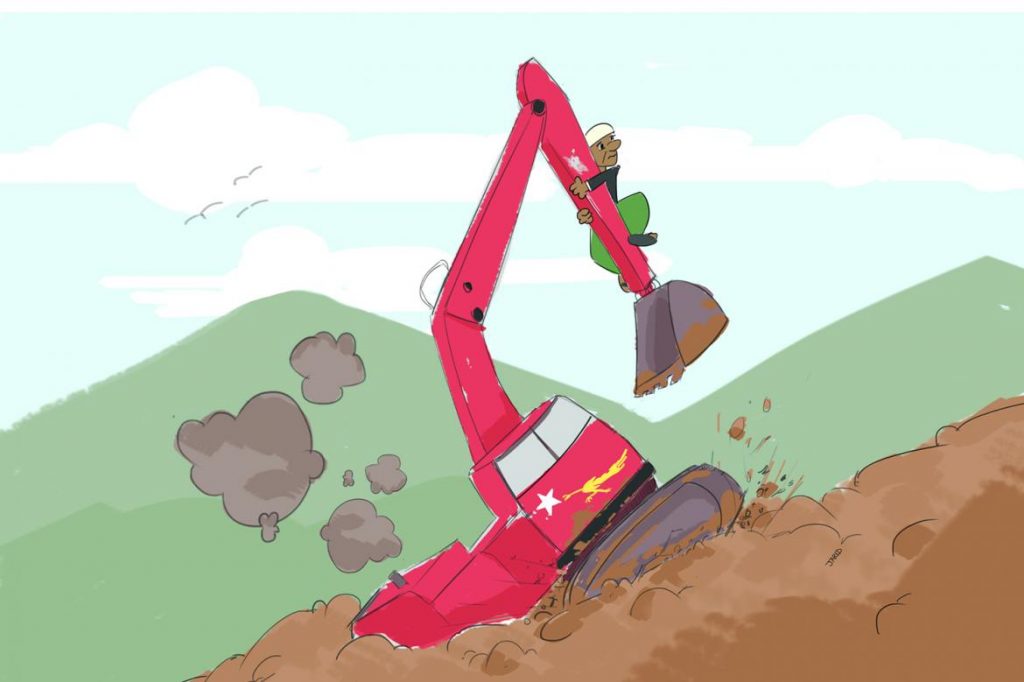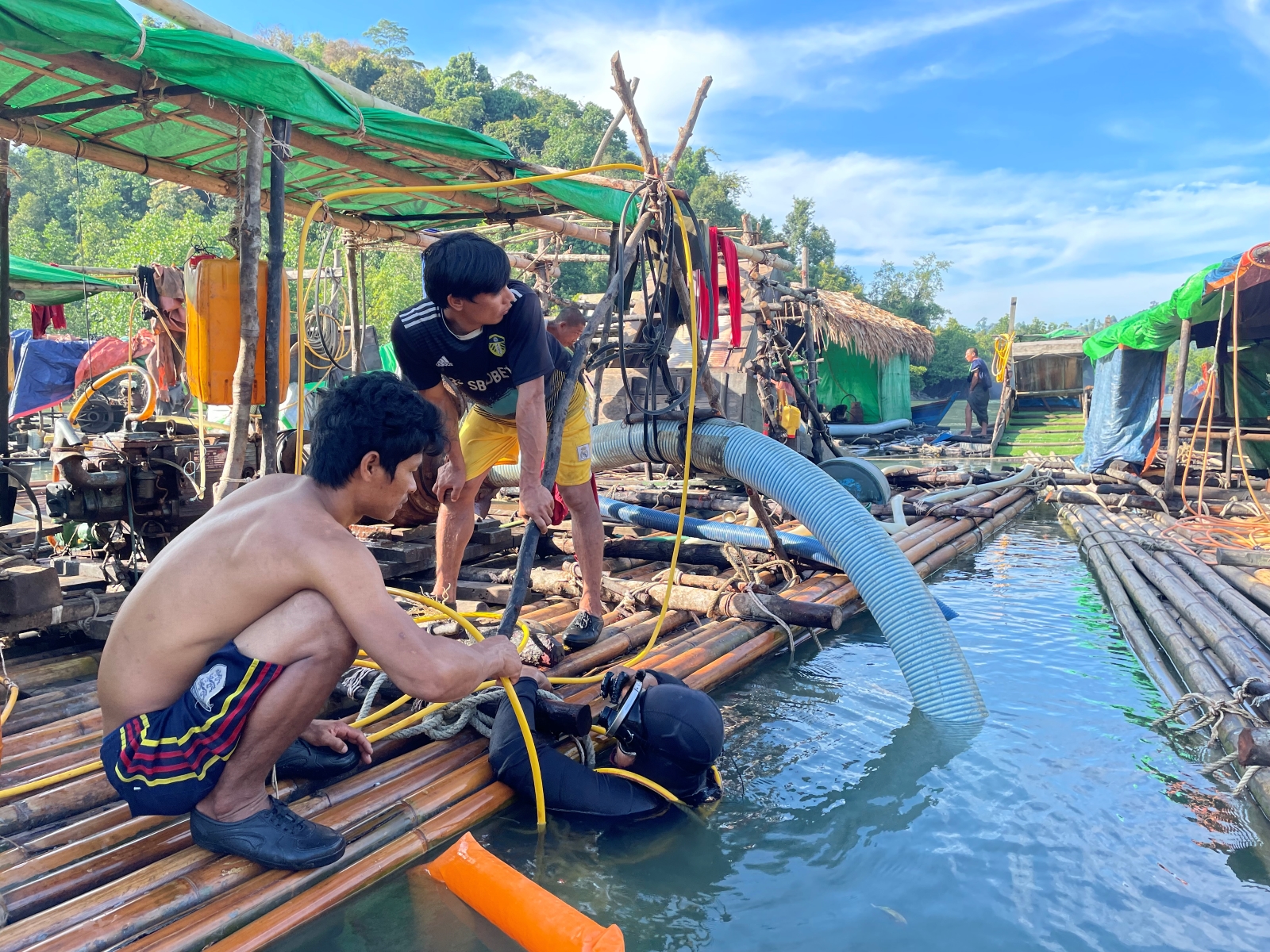The deaths of 54 workers in an April 22 accident at a jade mine in the Hpakant region of Kachin State was a predictable and entirely preventable tragedy.
How many more people will die unnecessarily before the government takes serious action?
This is not a problem created by the National League for Democracy. When the NLD came to power in March 2016, it inherited a jade mining industry that had for many years placed profits above people, and the corporate interest above the national interest.
There is nothing inherently wrong with jade mining. With an appropriate and properly enforced legal framework covering the entire jade value chain, jade could generate massive revenues for national coffers, enabling investments in social services and infrastructure.
The problem is the destructive way that it has been undertaken in Myanmar.
Hpakant has been left a toxic moonscape of craters, polluted rivers and waste dumps. It is unrecognisable from three decades ago. It will never recover, at least not in our lifetimes.
Support more independent journalism like this. Sign up to be a Frontier member.
The many billions of dollars in profits from illegal jade exports have fuelled corruption, conflict and the building of many corporate empires.
Countless lives have been destroyed in the process, not only through mining accidents, but also the drug use and general lawlessness that pervades Hpakant.
The 54 people who died on April 22 join a long and tragic roll call. Last year, the Humanity Institute and Kachin National Social Development Association estimated that around 500 people had been killed in landslides in Hpakant since 2014.
Let’s put that in perspective. Landmines are (quite rightly) considered a huge problem in Myanmar; nine out of 16 states and regions have some contamination, and the Tatmadaw was the only state force in the world still laying mines last year, according to the Landmine Monitor 2018. The number of confirmed deaths last year due to mines and other explosive remnants was 48.
But it does not have to be this way. Environmental destruction, accidents and rampant corruption in the jade industry are not inevitable.
Sadly, the NLD seems to lack the political will to clean up the mess in Hpakant.
Initially it took some positive steps, including the non-renewal of expiring permits and the commissioning of an environmental management plan for the Hpakant and Lone Khin areas.
But since then it has lost its way, for reasons that are not quite clear.
The EMP was completed and submitted to the government in August 2017. Twenty-one months later, it has not been introduced.
As mining permits expire, licensed companies have simply been replaced by illegal mining operations. Waste dumps have proliferated close to villages and mining settlements.
A regressive Gemstone Law has been enacted by the NLD-dominated legislature, while a draft gemstone policy has reportedly been watered down.
The Myanma Gems Enterprise has proven itself totally unable to regulate the sector. Its claim that an EMP cannot be implemented until existing licences expire in 2021 appears to be an excuse to maintain the status quo.
The crisis in Hpakant needs to stop. The Environmental Conservation Law provides the circuit breaker for the government. Under section 9 of the law, the government can declare an environmental emergency at Hpakant.
It should do this and direct the Environmental Conservation Committee and Ministry of Natural Resources and Environmental Conservation to halt all mining until a proper regulatory framework that meets international standards can be established.
The few permits that remain in place would be suspended until such a time that mining can be undertaken safely.
While mining is halted, the government should review the EMP, Gemstone Law and gemstone policy, and harmonise them in way that will ensure sustainable jade mining operations. Closer monitoring of production to combat tax evasion and illegal exports will also be essential.
Finally, then, Myanmar might then have a jade mining industry that benefits the entire country, and not just a lucky few.







